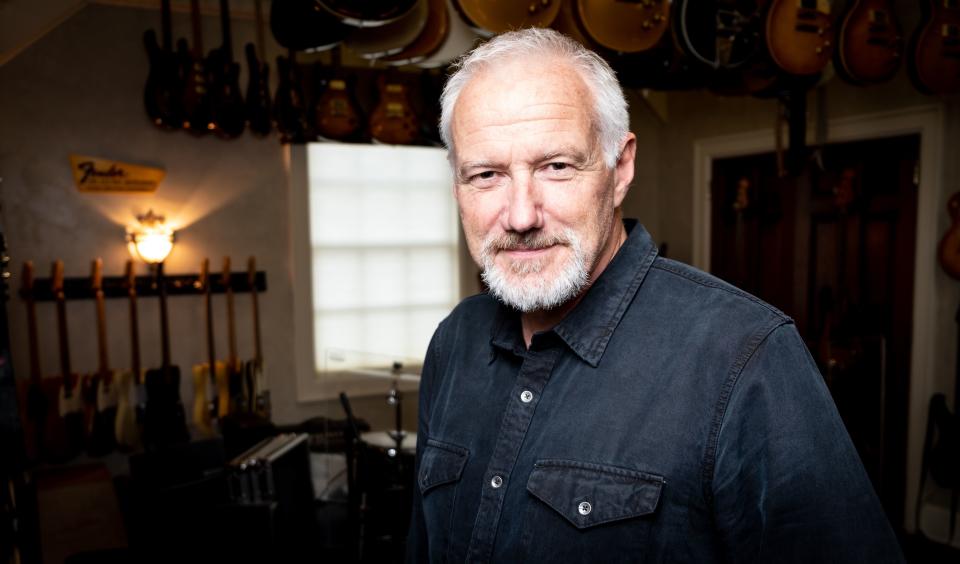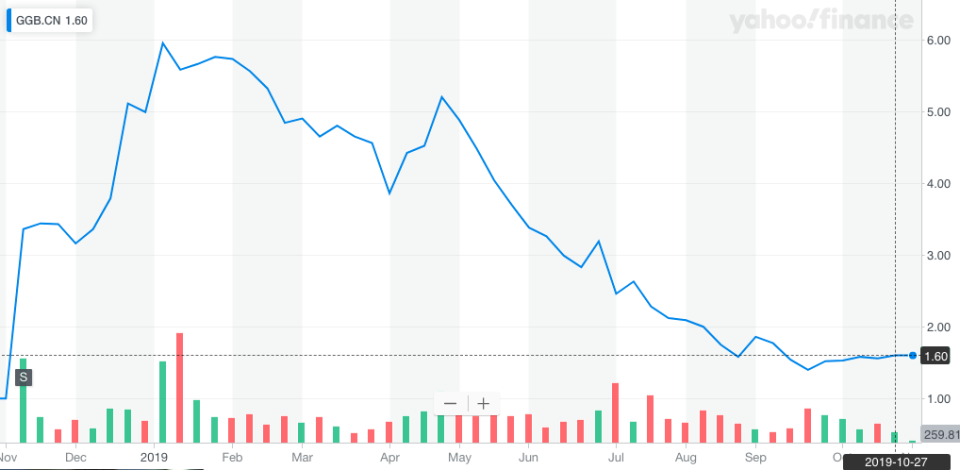Will busy U.S. malls deliver a Christmas miracle for this pot company?

The holiday shopping season can’t come soon enough for Green Growth Brands (GGB.CN)(GGBXF) CEO Peter Horvath.
The U.S. retail veteran with senior roles at American Eagle Outfitters and the parent of Victoria’s Secret on his resume is counting on the annual spike in mall traffic to boost sales of his company’s CBD-infused personal care and beauty products.
A strong showing in the critical weeks leading up to Christmas would go a long way to affirm his costly strategy of getting consumers to buy cannabis products inside well-known clothing and shoe stores stores.
“This is the first CBD line that has probably ever had a holiday plan on par with a Louis Vuitton, Victoria’s Secret or Lululemon,” he told Yahoo Finance Canada in an interview. “The traffic is coming. I feel like I’m doing a Game of Thrones impression. You know, ‘winter is coming.’ Well, the holidays are coming and we’re ready.”
Backed by the wealthy Schottenstein family, owners of large stakes in U.S. shopping mall staples like American Eagle Outfitters and shoe retailer DSW, Green Growth Brands is an American cannabis cultivator and retailer. It also produces and sells CBD-infused consumer products under labels including Green Lily and Seven7h Sense. The latter business has focused on selling in kiosks in upscale malls, and in retail stores that have nothing to do with cannabis.
BDS Analytics and Arcview Market Research projects the collective market for CBD sales in the U.S. will surpass $20 billion by 2024, with topicals representing about a quarter of purchases.
Ohio-based Green Growth’s CBD line spans infused face toners, body lotions, oral drops and gummies. Horvath said the products are in about 500 American Eagle stores, 175 Abercrombie & Fitch locations, and 175 DSW outlets, as well as 169 mall kiosks across the United States through agreements with Simon Property Group (SPG) and Brookfield Properties (BPY).
“It’s kind of a big bang launch,” Horvath said. “It’s also why when you look at our financials, just like other cannabis companies, you see that we are booking big losses because of the upfront costs associated with building this business.”

Green Growth investors could use some holiday cheer after a challenging first year in the public market. The stock has retreated well below its $3.05 debut on the Canadian Securities Exchange after soaring above $6 in mid-January. Shares closed at $1.60 on Monday.

Last month, the company reported a loss of more than US$64.3 million for its fiscal year ended on June 30, and sales of $15.7 million. The company’s debt was almost $90 million at year-end, fueling online speculation about its ability to make good on payments. Cash burn has been a concern as well, with the cost of sales in the fourth quarter outstripping revenue by more than $700,000.
“It’s basically build it before you have the sales,” Horvath said of the company’s fast-moving retail-focused approach. Knowing a “very successful family” has “got our back covered” is also helpful, he added.
Earlier this year, Green Growth grabbed headlines in a failed bid to acquire Canadian licenced producer Aphria. (APHA.TO)(APHA) That pushed transaction costs for the year-ended June 30 above $13 million. The company said it lost $6.6 million selling Aphria shares in the fourth quarter.
Horvath said his current growth plans involve pursuing a “pipeline of thousands of stores” that will justify the upfront spending by building consumer awareness of CBD in places where people are used to shopping, as opposed to the relatively new notion of cannabis stores.
Canaccord Genuity analyst Derek Dley is cautiously optimistic about Green Growth’s CBD strategy, despite concerns about higher-than-expected costs and slow-moving inventory.
“We believe GGB’s CBD business is approaching an inflection point, and expect the segment’s top line to growth substantially over the near-to-medium term,” he wrote in a note to clients last month.
Horvath admits he had low expectations when he started introducing CBD products in DSW stores about a year ago. He said the speed at which Green Growth has operated since then has been a challenge coming from retail.
“The idea of going public a year ago, before you’ve really launched your business, that might be a dot com thing, but it’s very new to a retailer,” he said. “It seems common in cannabis.”
True to his retail roots, Horvath said his Christmas campaign was refined in a room full of the competition’s products. He and his team compare everything from cost, to fragrance, to how quickly moisturizers absorb into skin. Knowing these nuances, he hopes, will give him an edge as holiday shoppers start ticking items off their lists.
“Unlike our competitors, we know what to do with those details,” he said. “We’re merchants.”
Download the Yahoo Finance app, available for Apple and Android.

 Yahoo Sports
Yahoo Sports 
